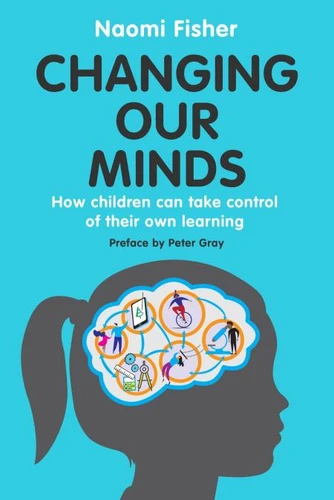Changing Our Minds. How children can take control of their own learning
Par :Formats :
Disponible dans votre compte client Decitre ou Furet du Nord dès validation de votre commande. Le format ePub protégé est :
- Compatible avec une lecture sur My Vivlio (smartphone, tablette, ordinateur)
- Compatible avec une lecture sur liseuses Vivlio
- Pour les liseuses autres que Vivlio, vous devez utiliser le logiciel Adobe Digital Edition. Non compatible avec la lecture sur les liseuses Kindle, Remarkable et Sony
- Non compatible avec un achat hors France métropolitaine
 , qui est-ce ?
, qui est-ce ?Notre partenaire de plateforme de lecture numérique où vous retrouverez l'ensemble de vos ebooks gratuitement
Pour en savoir plus sur nos ebooks, consultez notre aide en ligne ici
- Nombre de pages304
- FormatePub
- ISBN978-1-4721-4550-5
- EAN9781472145505
- Date de parution03/02/2021
- Protection num.Adobe DRM
- Infos supplémentairesepub
- ÉditeurRobinson
Résumé
Children are born full of curiosity, eager to participate in the world. They learn as they live, with enthusiasm and joy. Then we send them to school. We stop them from playing and actively exploring their interests, telling them it's more important to sit still and listen. The result is that for many children, their motivation to learn drops dramatically. The joy of the early years is replaced with apathy and anxiety.
This is not inevitable. We are socialised to believe that schooling is synonymous with education, but it's only one approach. Self-directed education puts the child back in control of their learning. This enables children, including those diagnosed with special educational needs, to flourish in their own time and on their own terms. It enables us to put wellbeing at the centre of education. Changing Our Minds brings together research, theory and practice on learning.
It includes interviews with influential thinkers in the field of self-directed education and examples from families alongside practical advice. This essential guide will give you an understanding of why self-directed education makes sense, how it works, and what to do to put it into action yourself.
This is not inevitable. We are socialised to believe that schooling is synonymous with education, but it's only one approach. Self-directed education puts the child back in control of their learning. This enables children, including those diagnosed with special educational needs, to flourish in their own time and on their own terms. It enables us to put wellbeing at the centre of education. Changing Our Minds brings together research, theory and practice on learning.
It includes interviews with influential thinkers in the field of self-directed education and examples from families alongside practical advice. This essential guide will give you an understanding of why self-directed education makes sense, how it works, and what to do to put it into action yourself.
Children are born full of curiosity, eager to participate in the world. They learn as they live, with enthusiasm and joy. Then we send them to school. We stop them from playing and actively exploring their interests, telling them it's more important to sit still and listen. The result is that for many children, their motivation to learn drops dramatically. The joy of the early years is replaced with apathy and anxiety.
This is not inevitable. We are socialised to believe that schooling is synonymous with education, but it's only one approach. Self-directed education puts the child back in control of their learning. This enables children, including those diagnosed with special educational needs, to flourish in their own time and on their own terms. It enables us to put wellbeing at the centre of education. Changing Our Minds brings together research, theory and practice on learning.
It includes interviews with influential thinkers in the field of self-directed education and examples from families alongside practical advice. This essential guide will give you an understanding of why self-directed education makes sense, how it works, and what to do to put it into action yourself.
This is not inevitable. We are socialised to believe that schooling is synonymous with education, but it's only one approach. Self-directed education puts the child back in control of their learning. This enables children, including those diagnosed with special educational needs, to flourish in their own time and on their own terms. It enables us to put wellbeing at the centre of education. Changing Our Minds brings together research, theory and practice on learning.
It includes interviews with influential thinkers in the field of self-directed education and examples from families alongside practical advice. This essential guide will give you an understanding of why self-directed education makes sense, how it works, and what to do to put it into action yourself.





